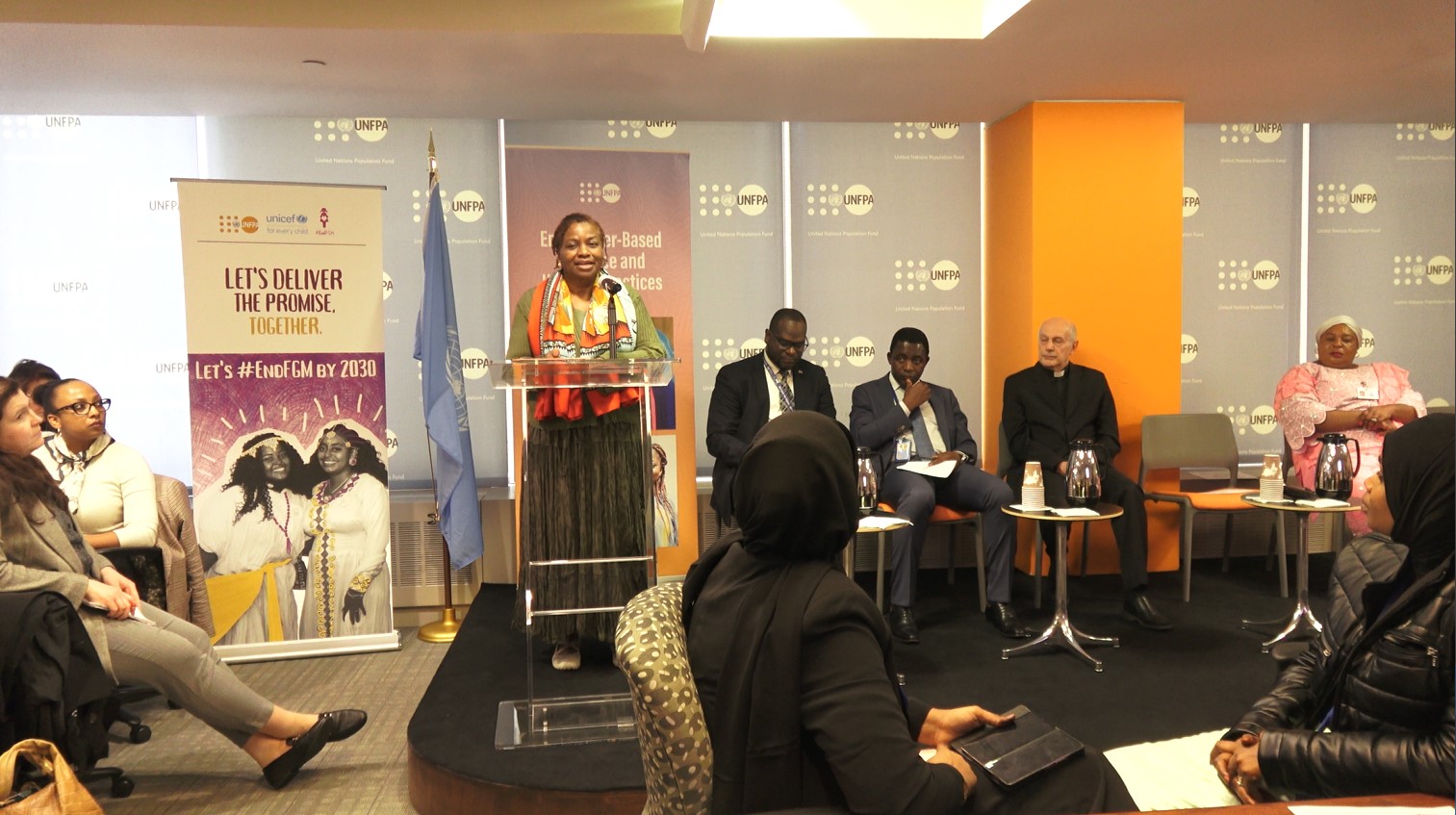
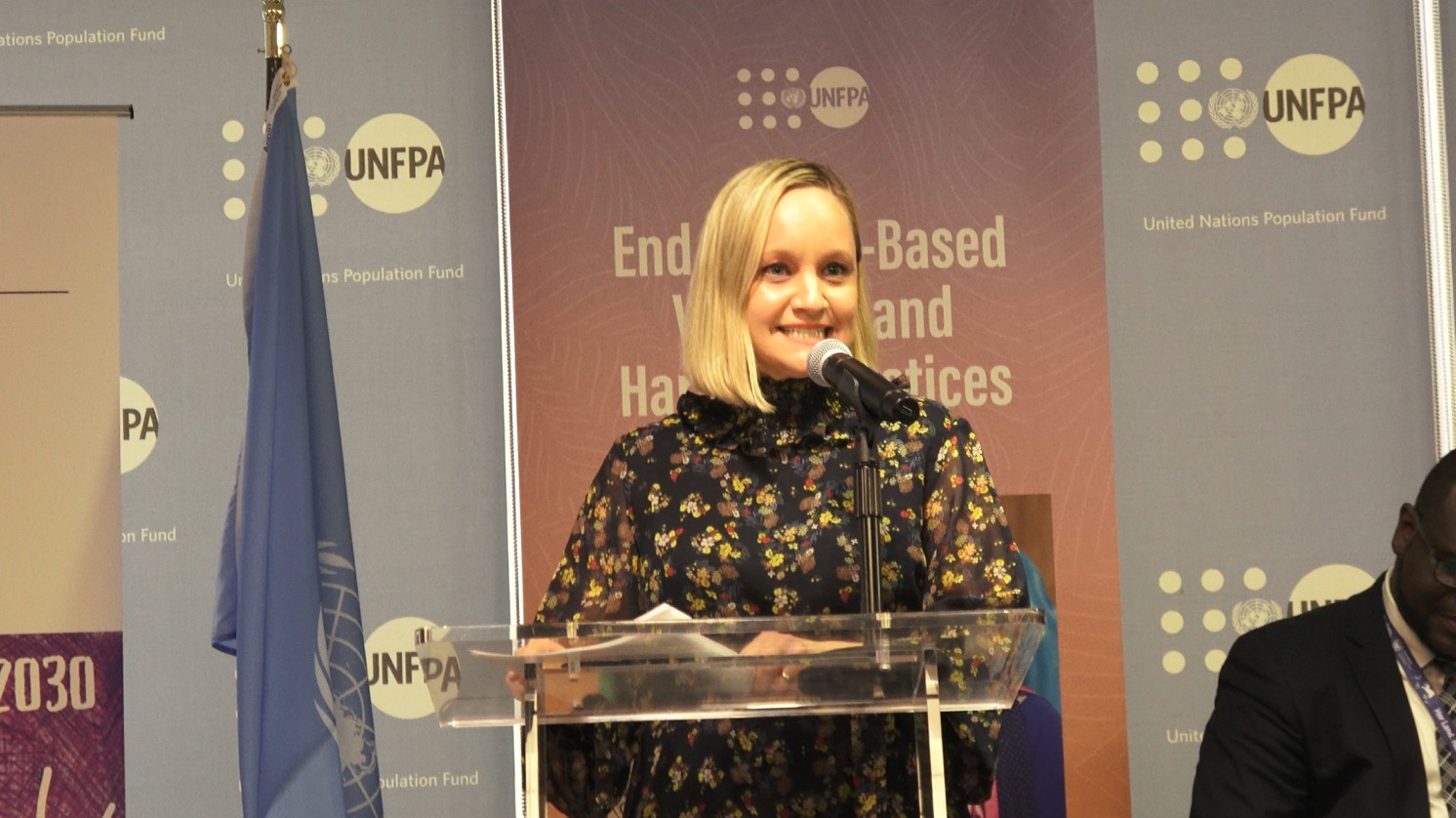
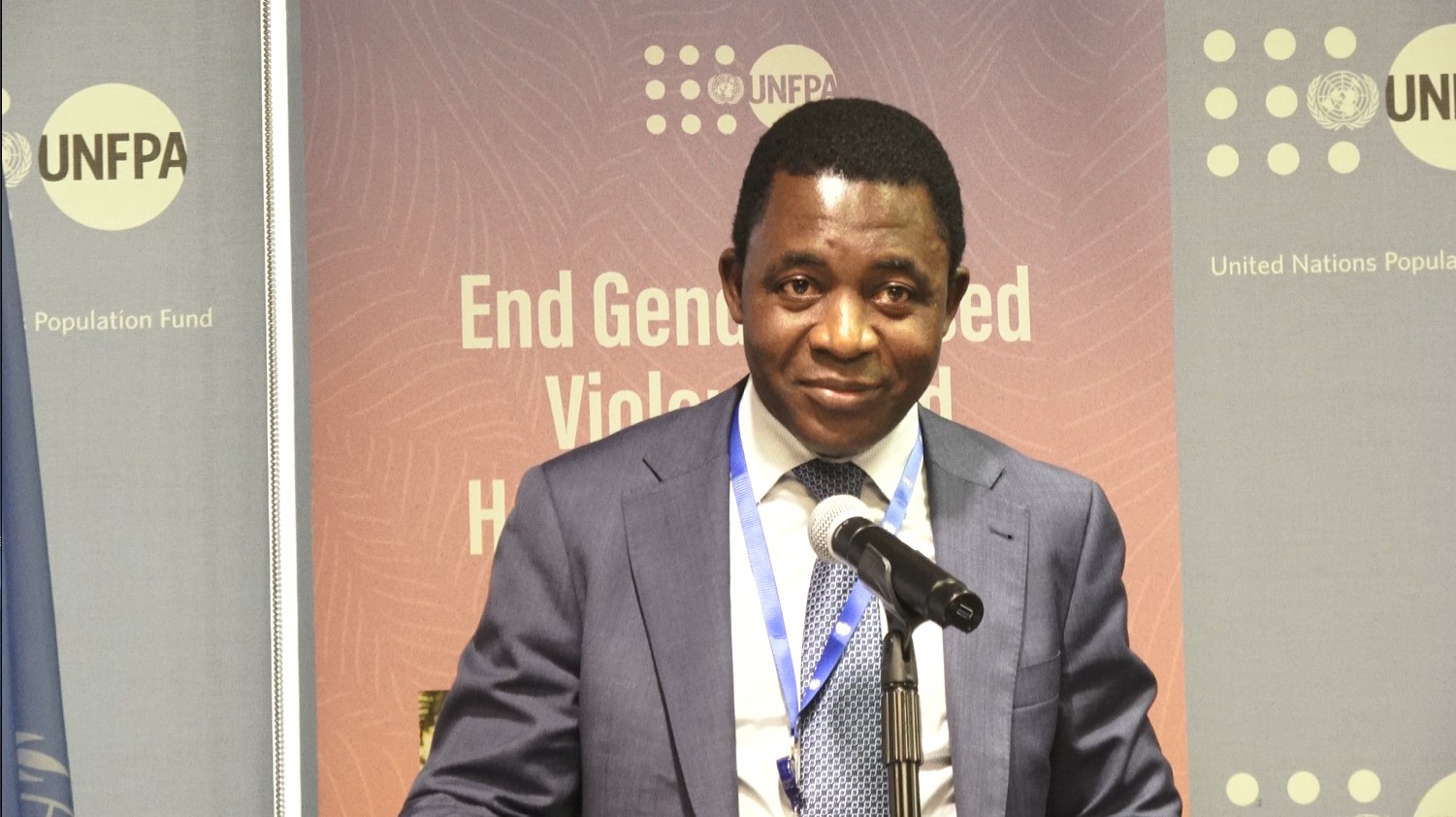
H.E.Mr.Oumarou Ganou, the Permanent Representative of Burkina Faso to the United Nations, emphasized that the issues of female genital mutilation and gender-based violence against women in his country are often exacerbated by traditions and religious beliefs, leading to the marginalization of women and preventing them from fully participating in society and accessing opportunities. He expressed gratitude to various partners for their joint efforts at the social, economic, and political levels, which have led to many achievements.
He mentioned that Burkina Faso established a National Council and implemented a five-year plan to combat female genital mutilation. Additionally, a hotline was established to report individuals practicing FGM and committing violence against women.
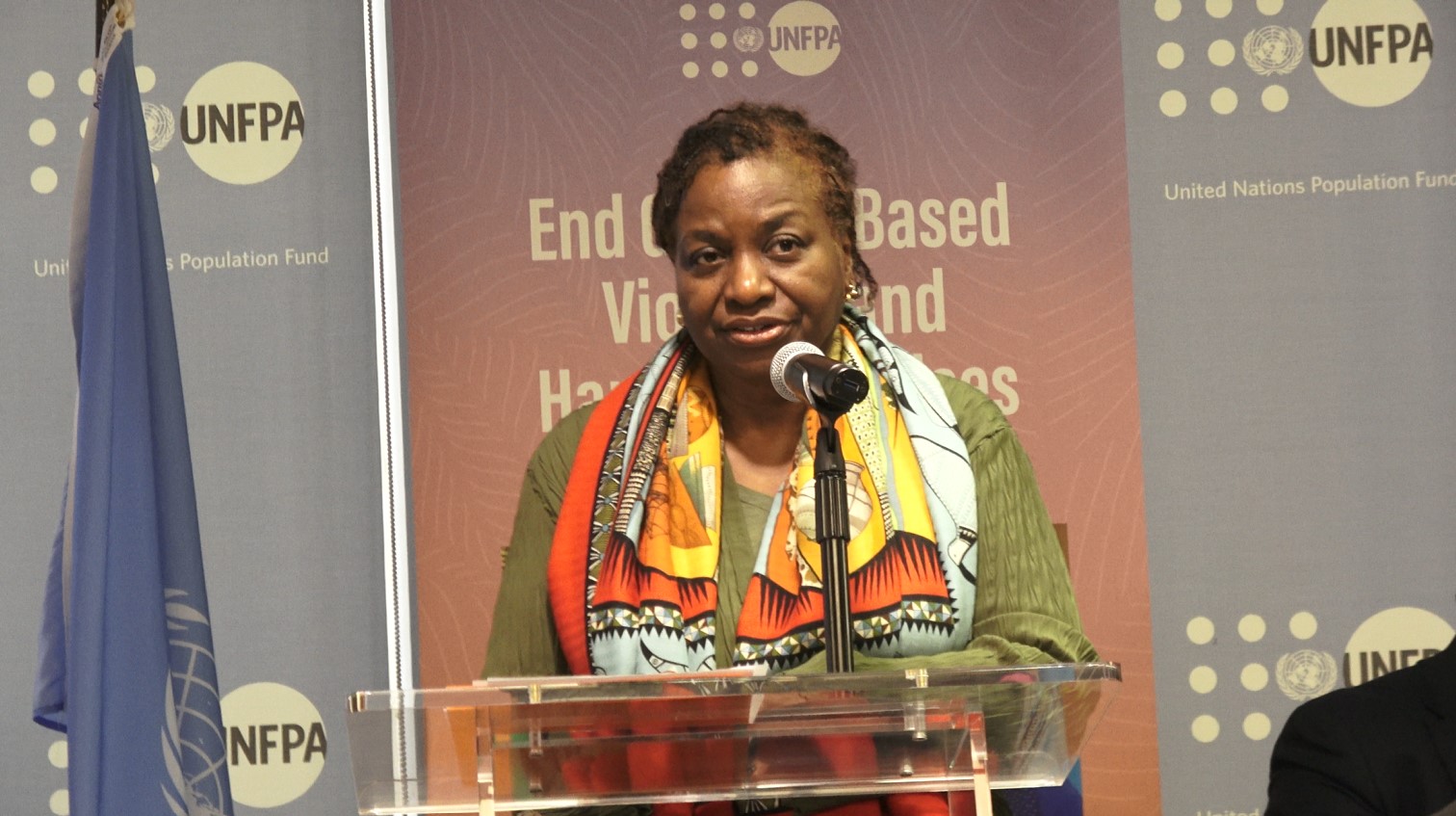
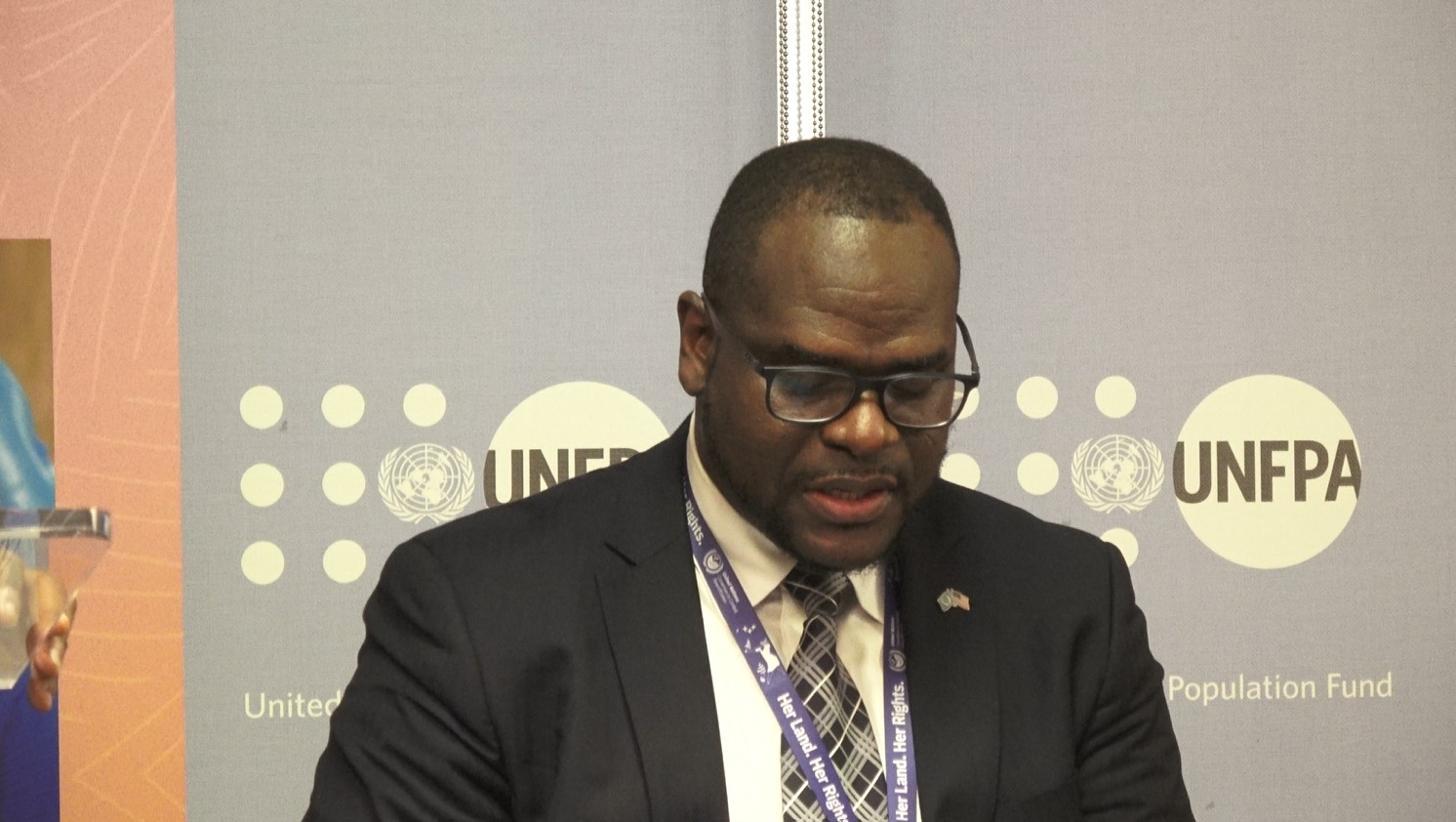
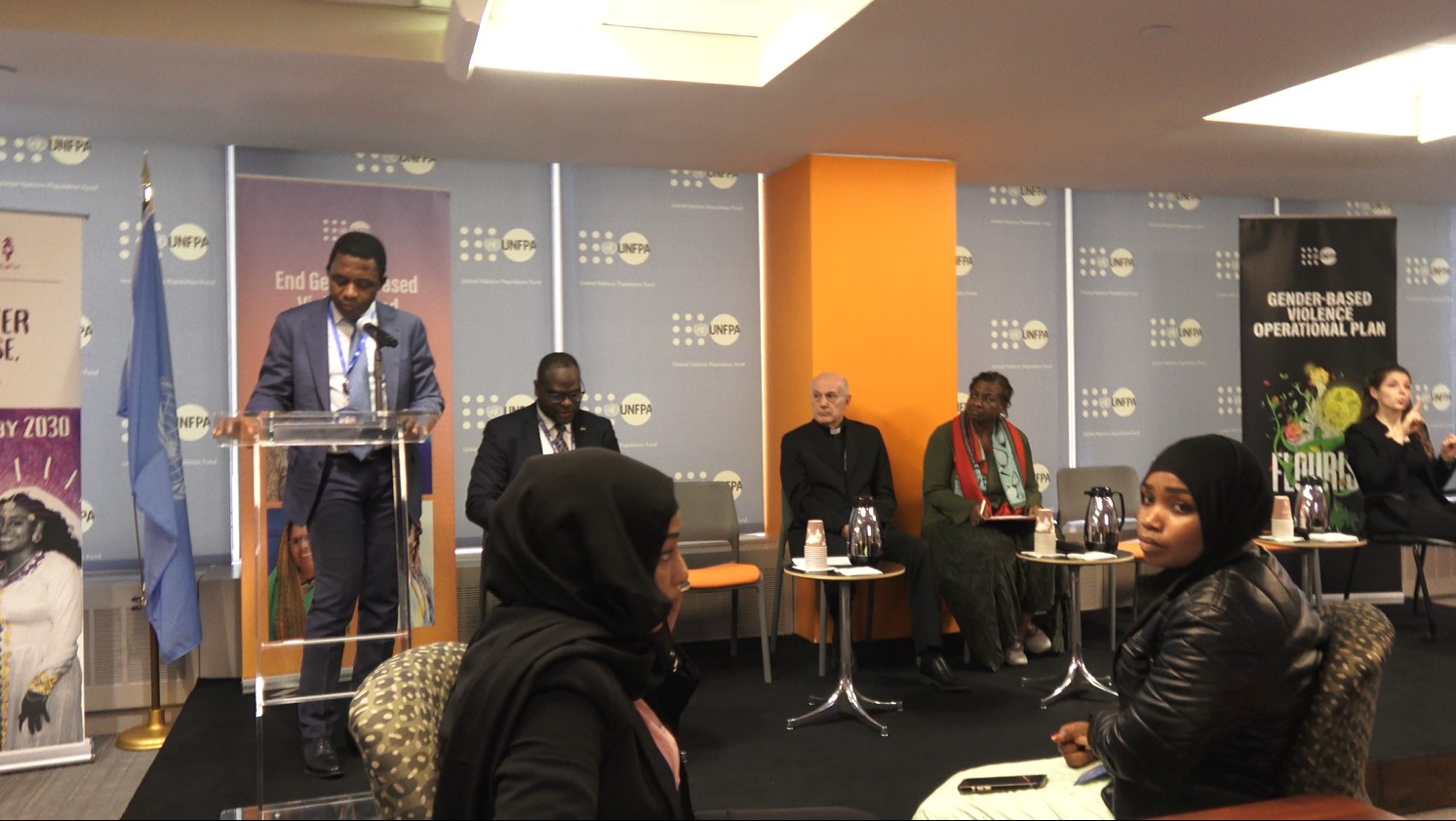
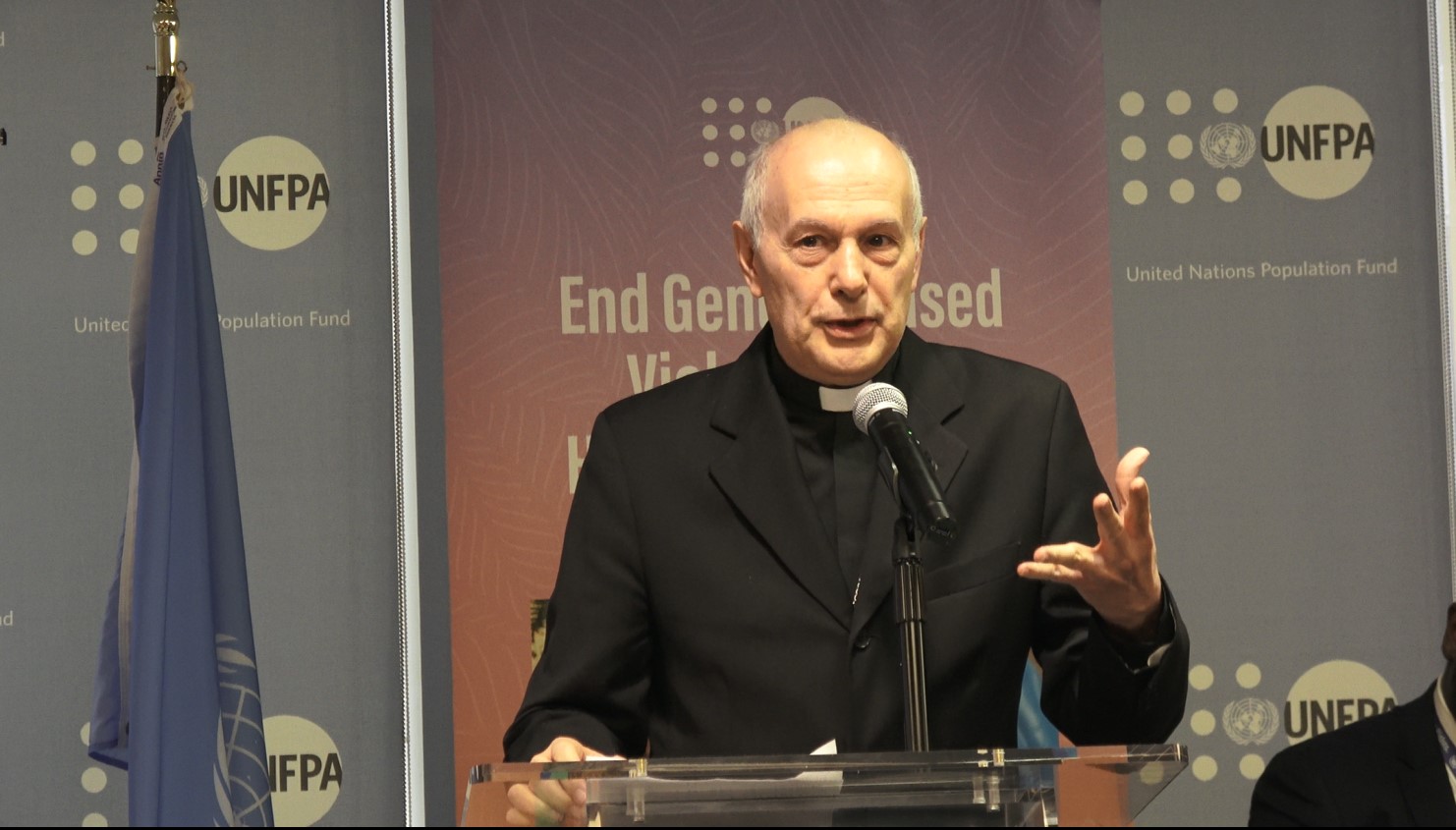
H.E.Archbishop Gabriele Caccia, the Permanent Observer of the Holy See to the United Nations, also delivered a speech. He highlighted the Catholic Church's global efforts to end female genital mutilation (FGM) and gender-based violence and shared how the Church provides services and support to victims.
He stated that the Catholic Church believes every person, male and female, is created by God with dignity and should be treated equally. He emphasized the Church's opposition to all forms of violence, especially against women, and quoted Pope Francis, stressing that harming a woman is an insult to God, as women represent human dignity and value.
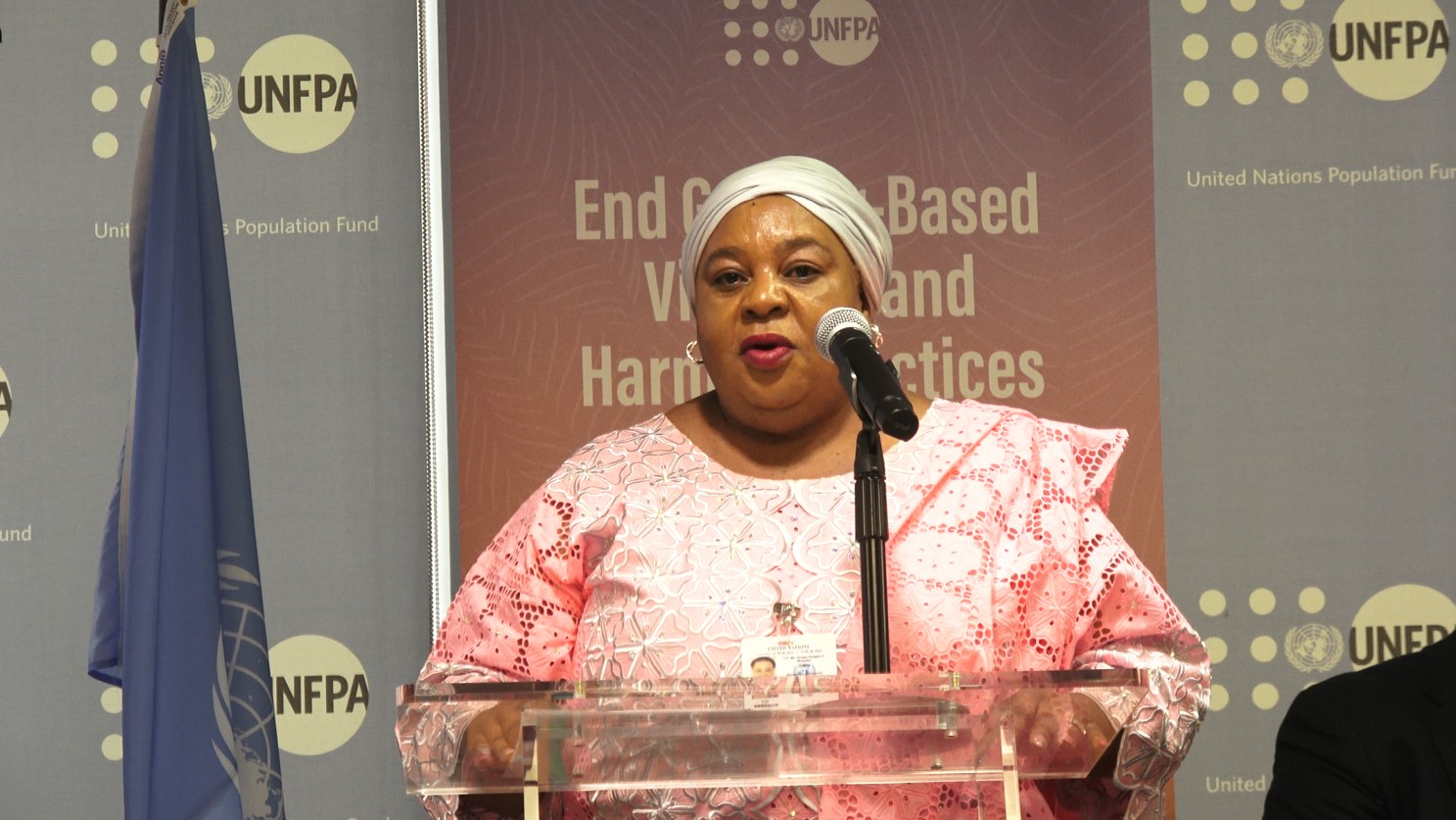
Next, the Zambian Minister of Community Development, Hon. Doreen Sefuke Mwamba. shared the country's progress in establishing legal and policy frameworks to combat gender-based violence and forced child marriages. She emphasized the critical role of legal and policy frameworks in prevention, intervention, and protection.
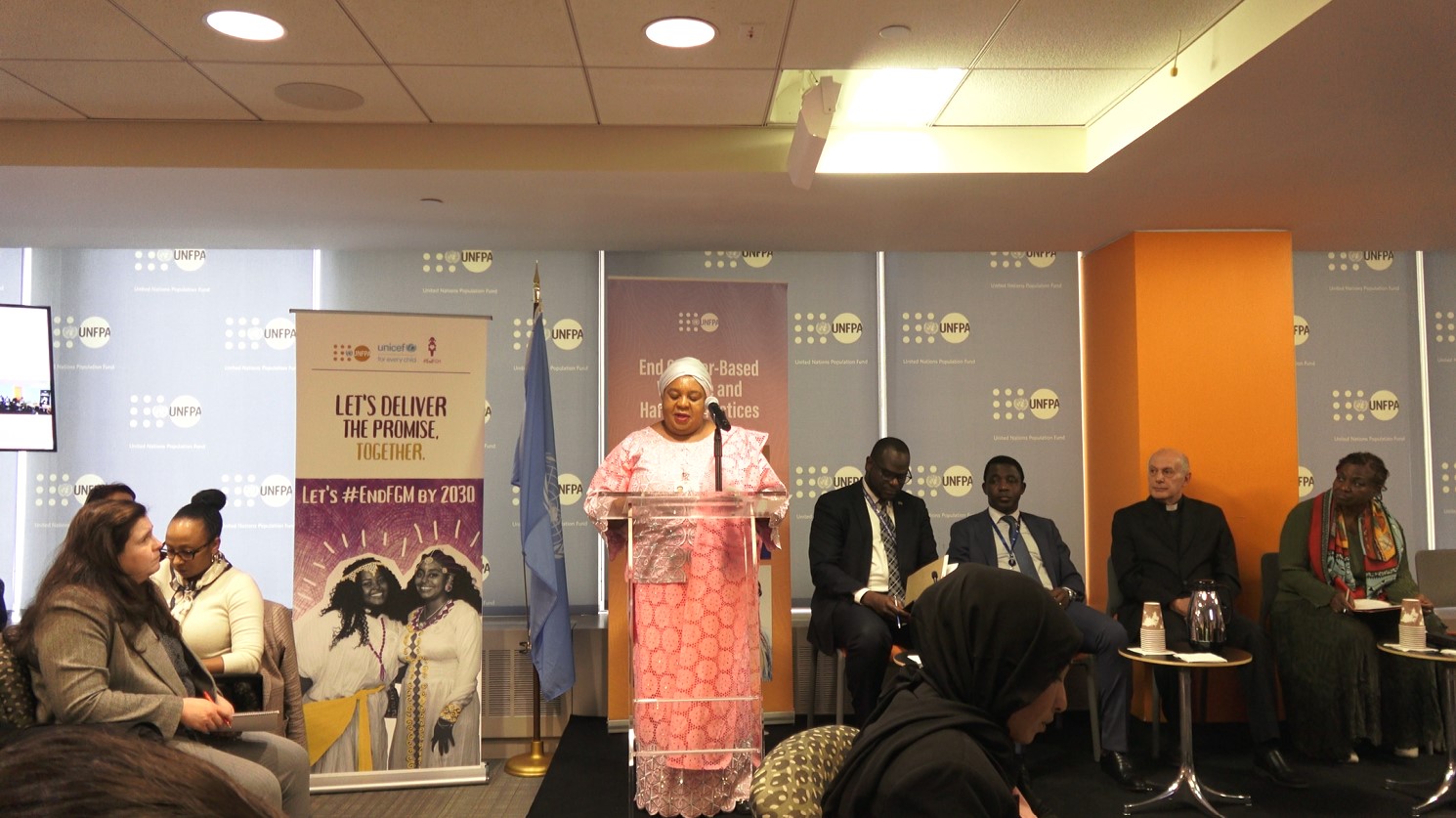
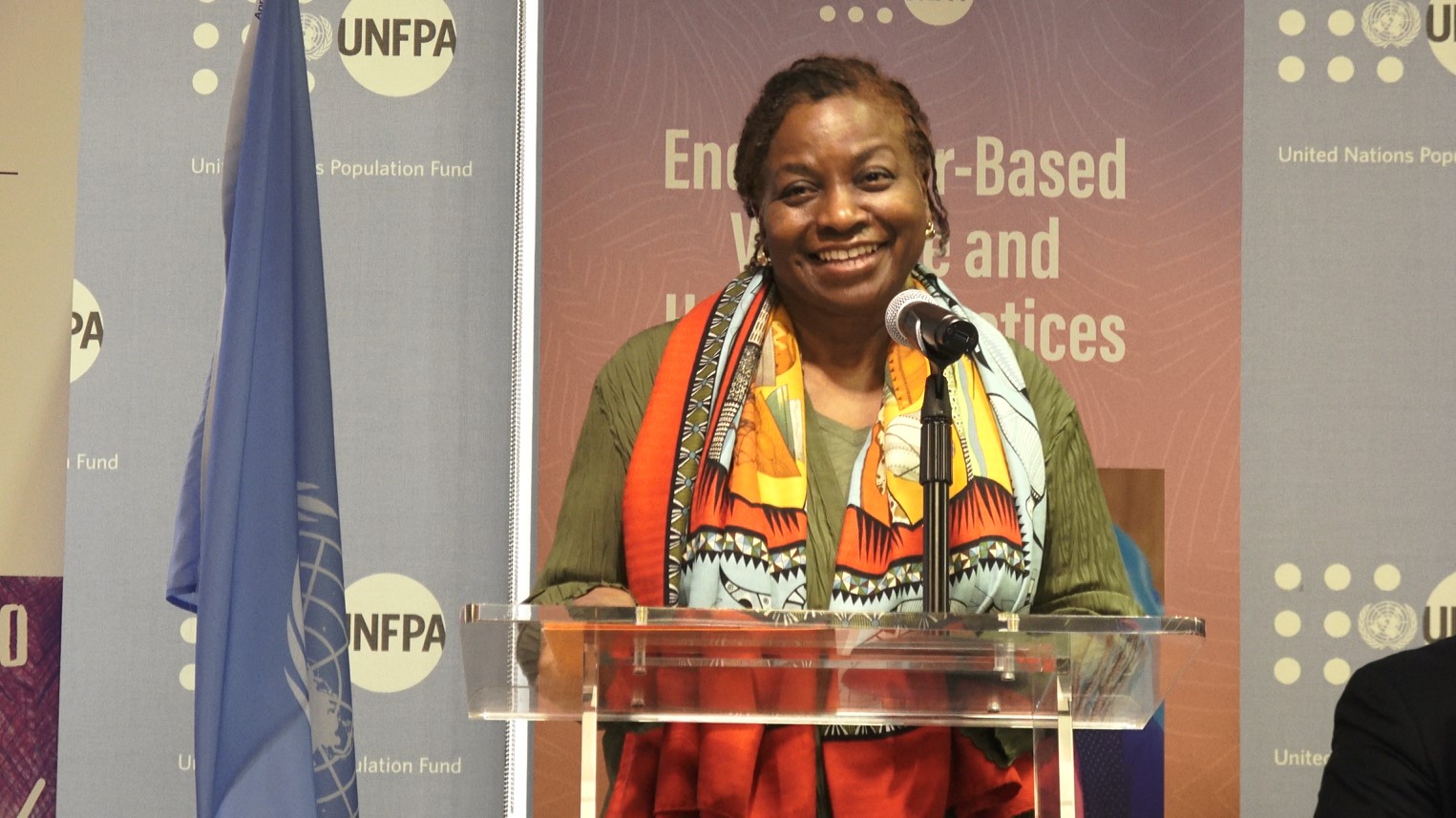
Dr. Natalia Kanem, the Executive Director of UNFPA, emphasized that peace is the noble goal of the United Nations and the wish of every woman and girl served by UNFPA worldwide. Despite some progress, women and girls globally still face risks of gender-based violence, female genital mutilation, and other harmful practices.
Dr. Kanem called for collective efforts to end these practices by promoting positive masculinities and directly engaging men and boys. She hoped that participants would take action to protect girls and eliminate FGM, bringing better health and happiness to girls and their families.
Finally, she thanked all attendees and invited them to take a group photo.
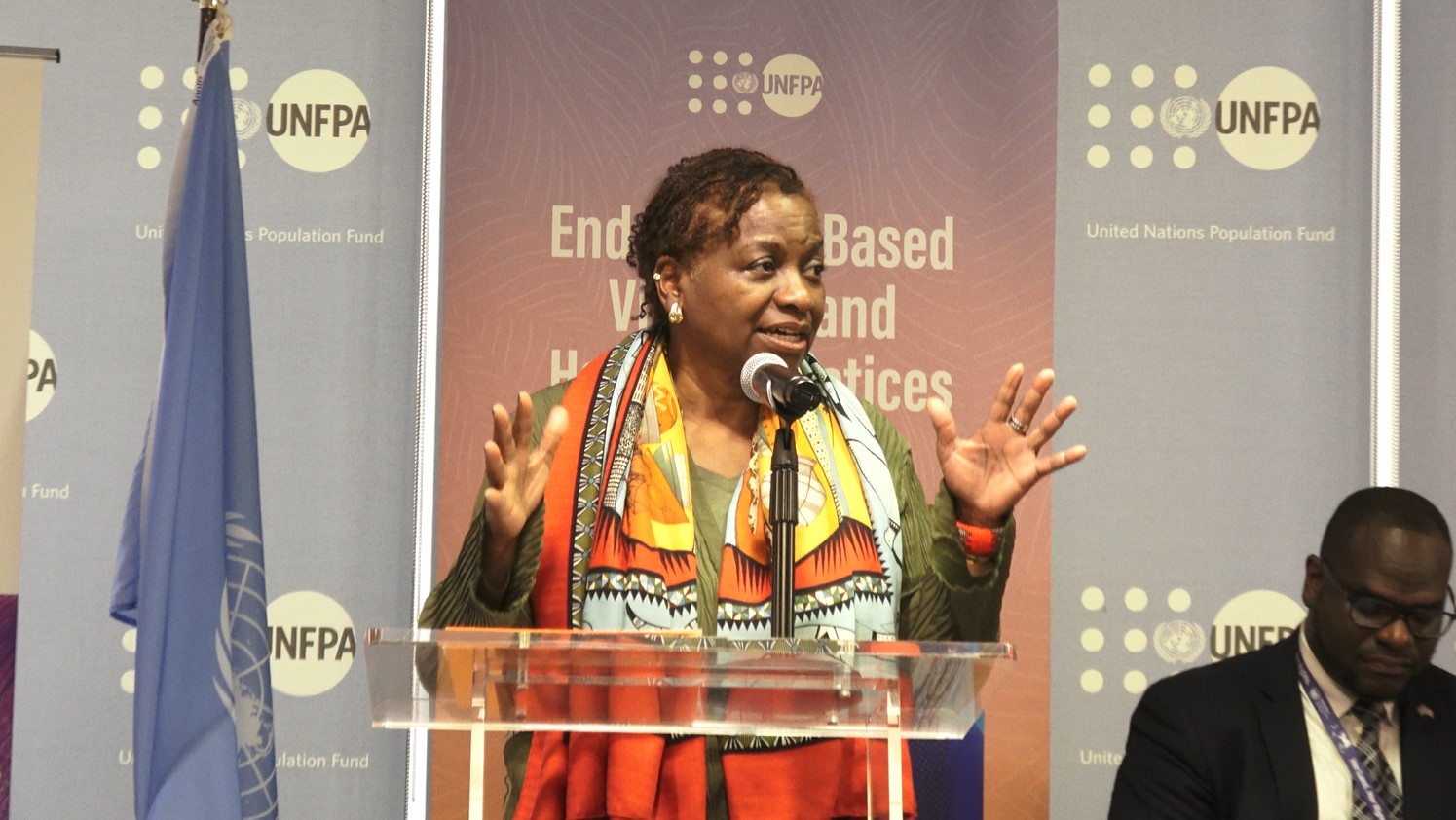
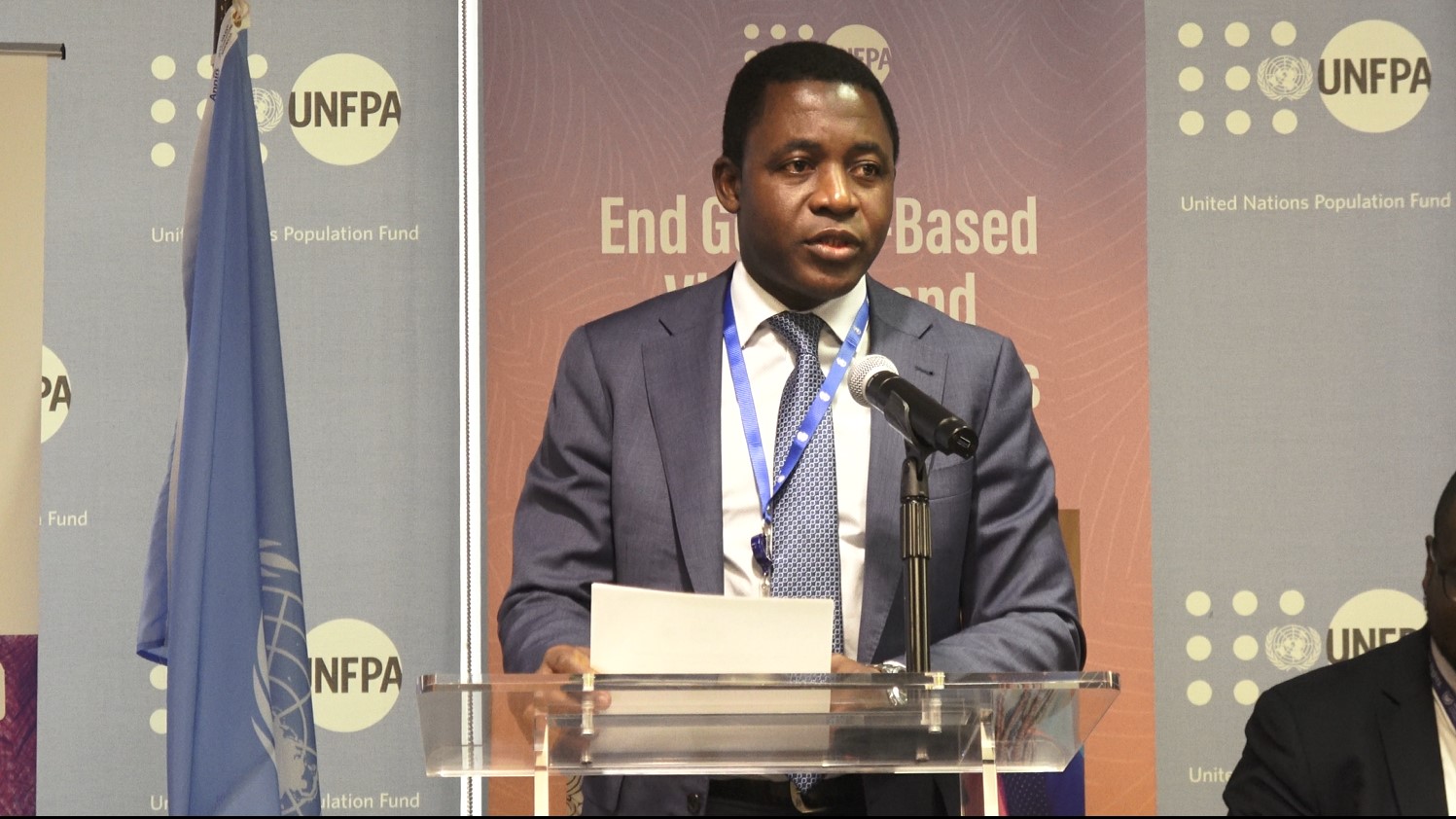
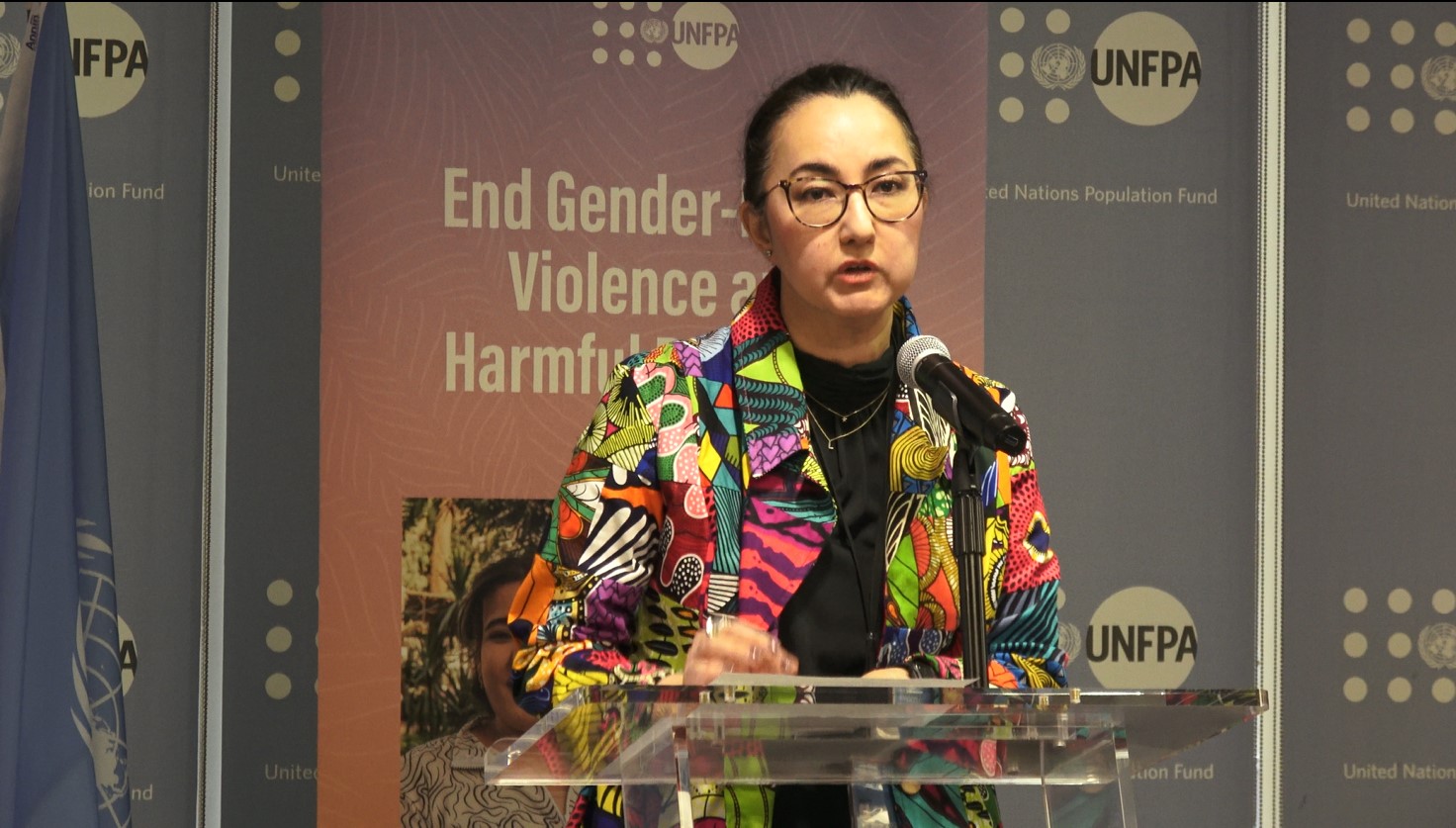
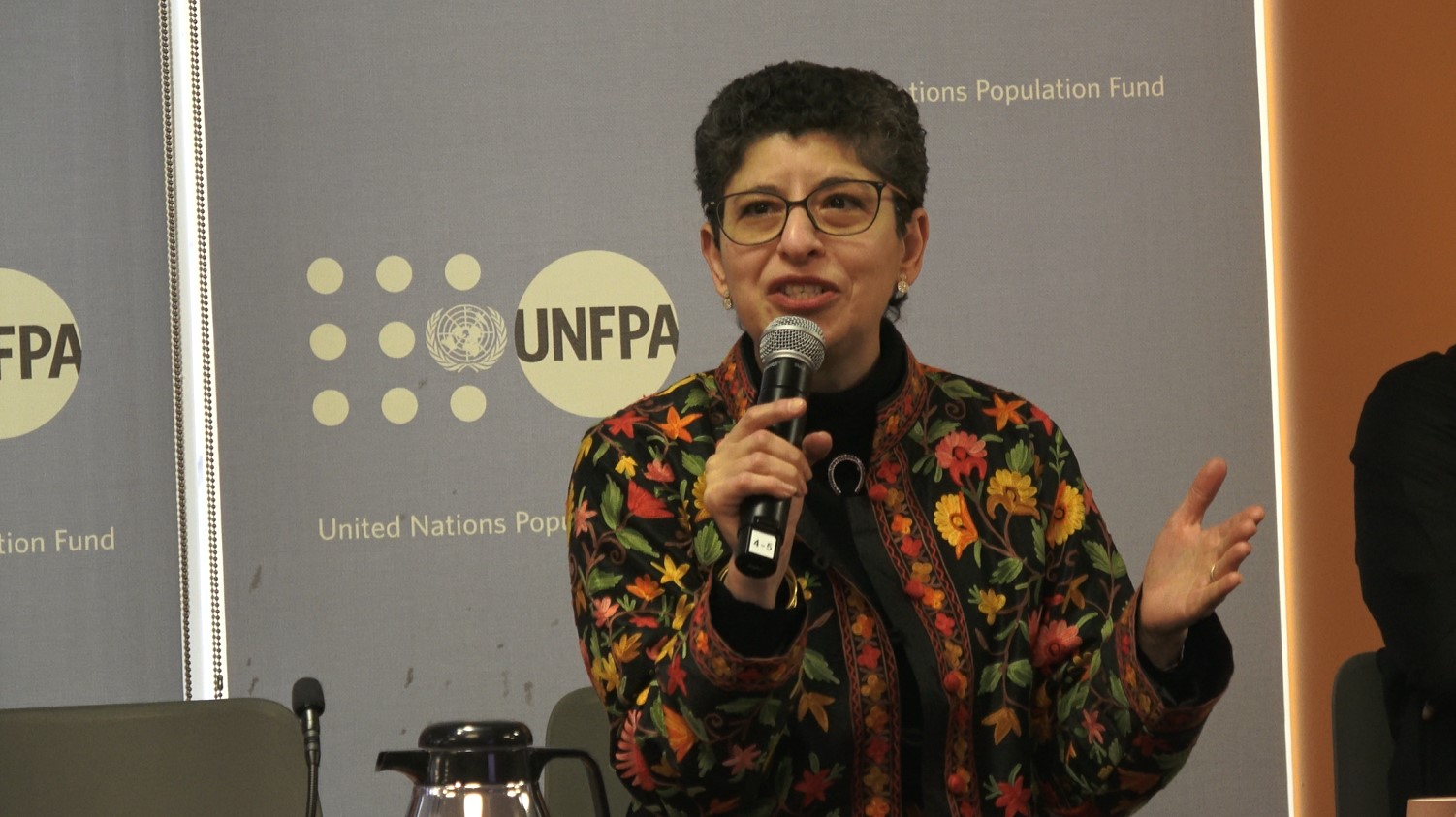
During the panel discussion, participants explored various strategies and methods to end female genital mutilation and gender-based violence, including legal, educational, social mobilization, and international cooperation. The discussion highlighted the importance of cross-sectoral collaboration and mobilizing communities, religious leaders, and the younger generation to achieve gender equality and protect the rights of women and girls.
Hon. Lynda Diseru Tabuya Minister for womenChildren and Social Protection, Fiji urged all participants to continue working together to end female genital mutilation and gender-based violence, ensuring a violence-free and equal world for women and girls.
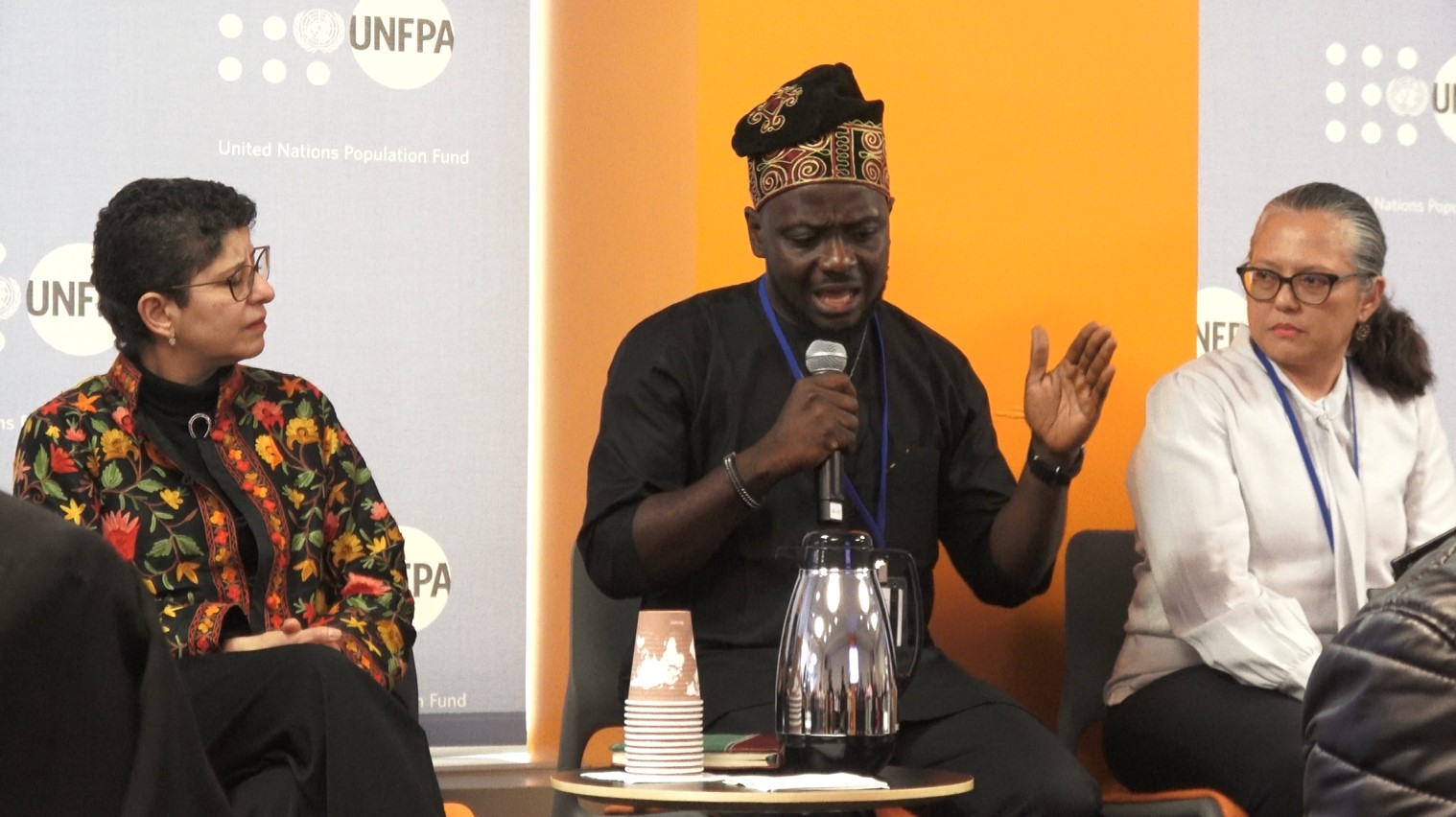
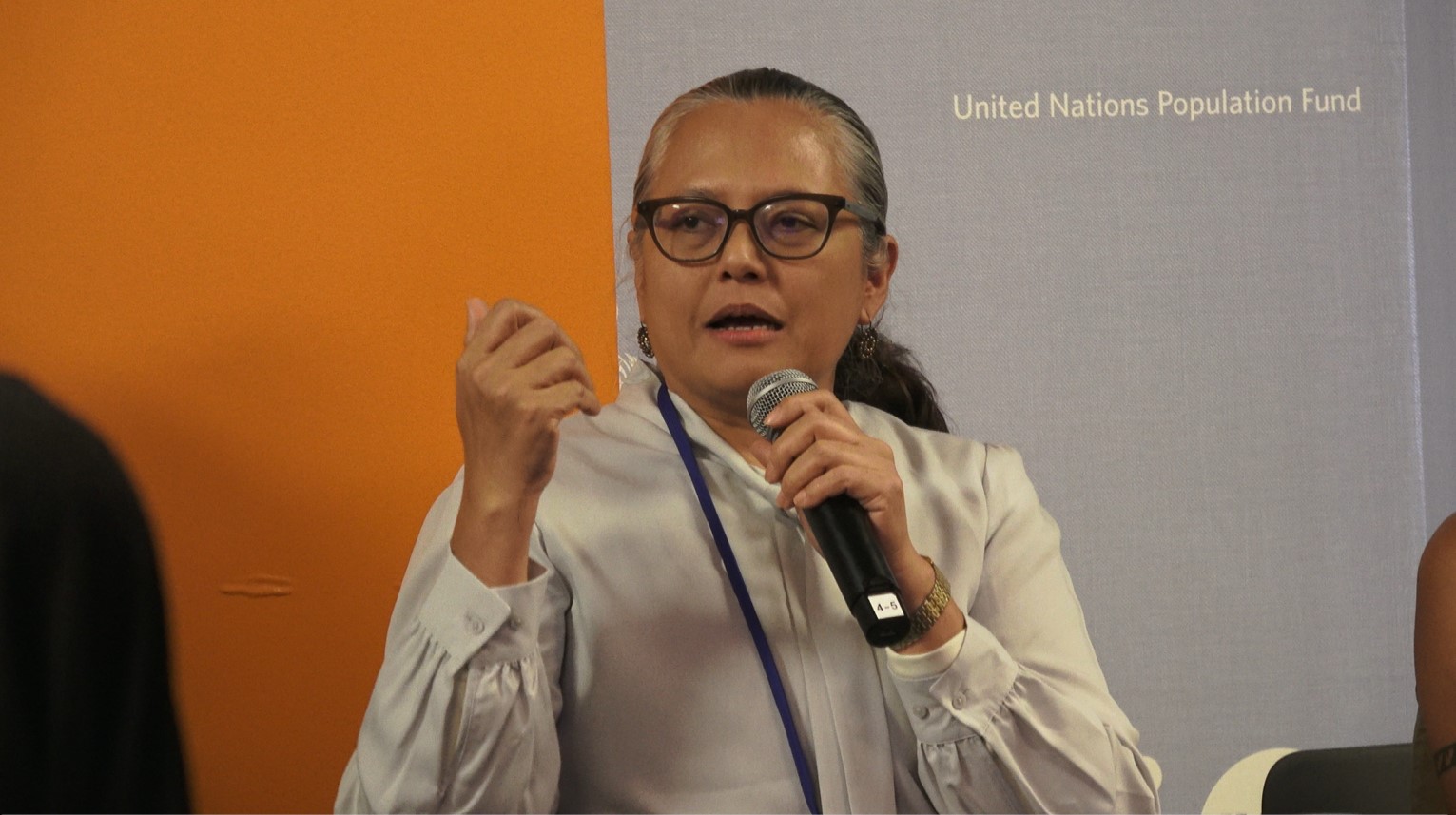
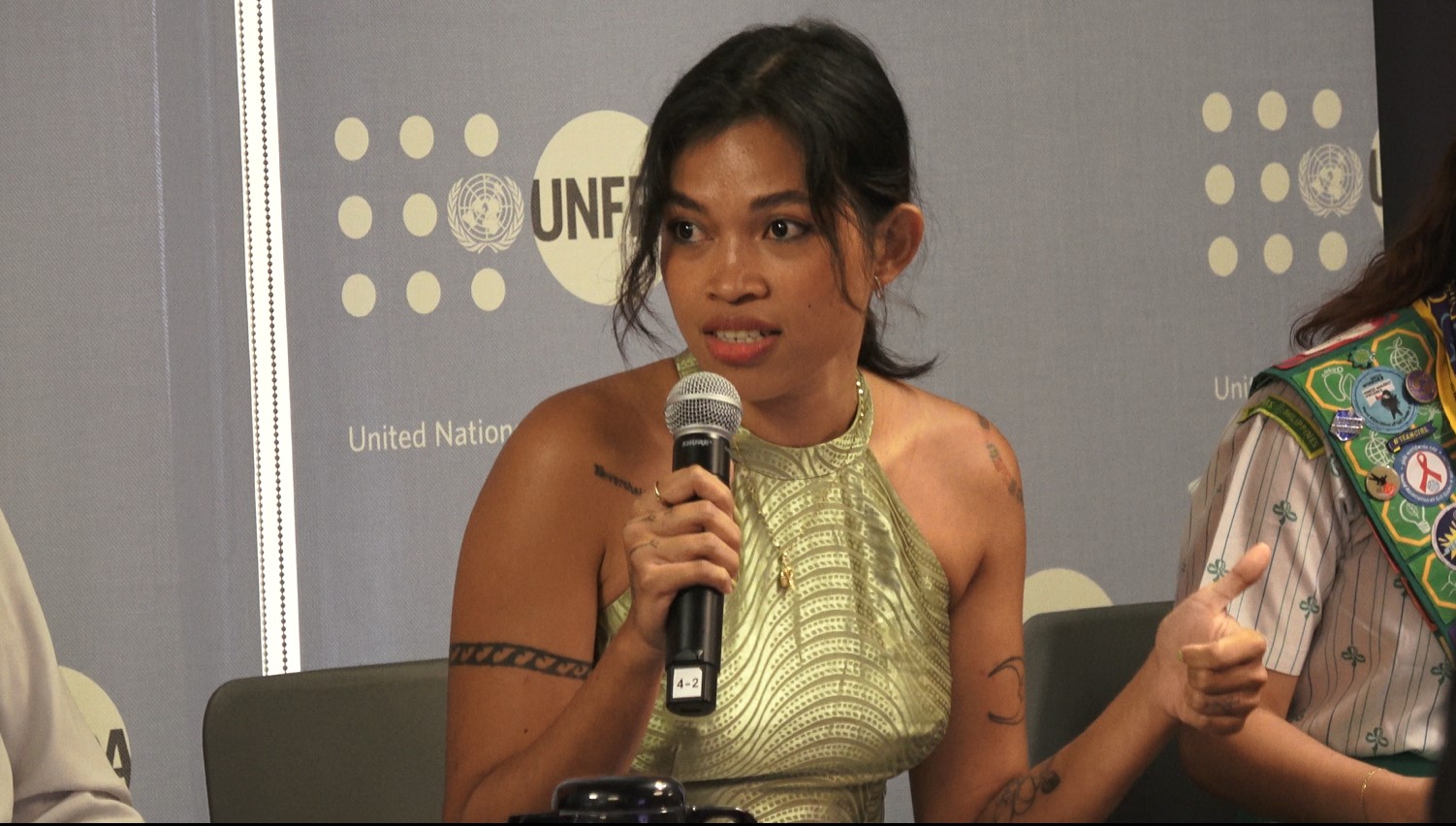
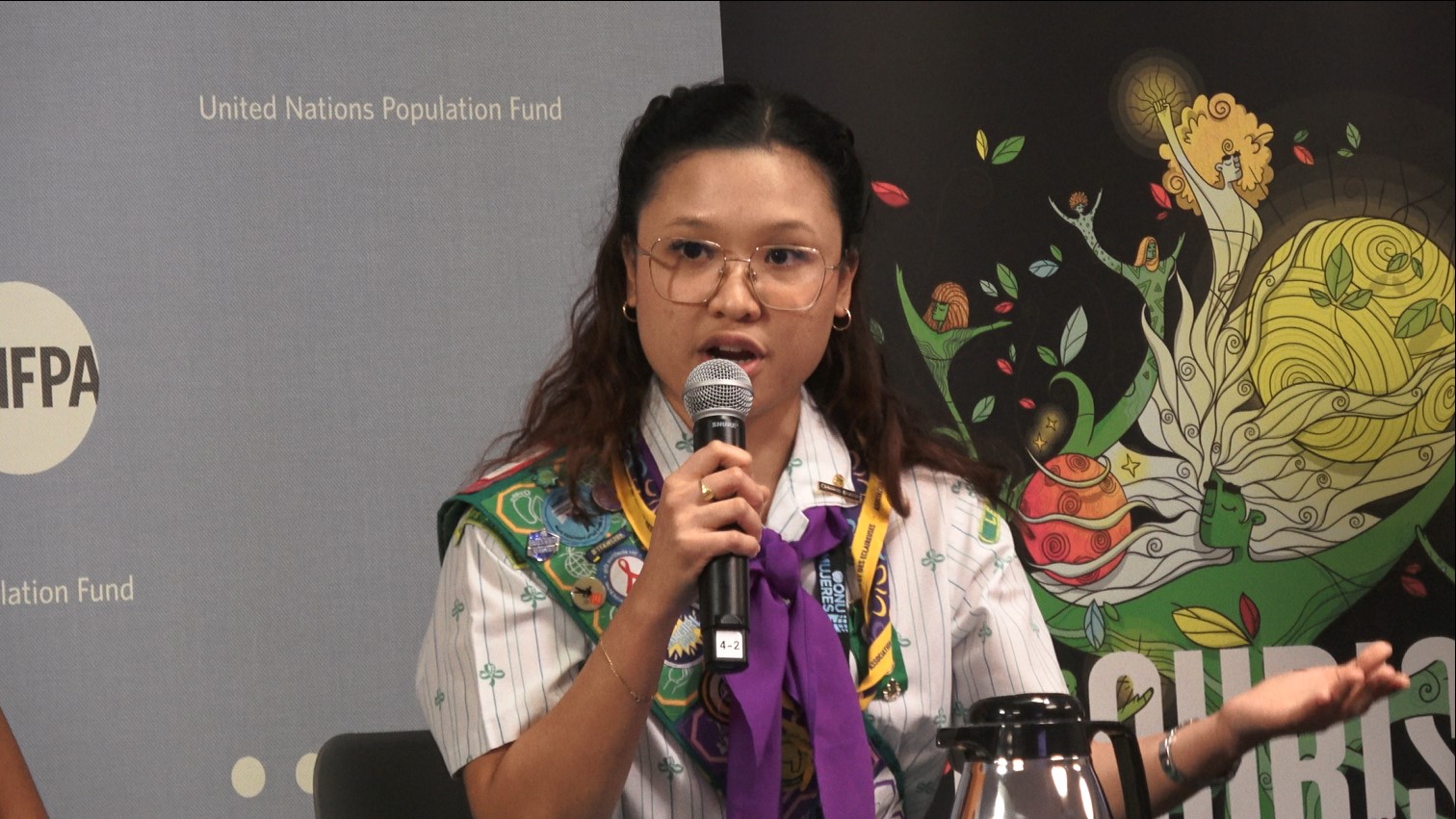
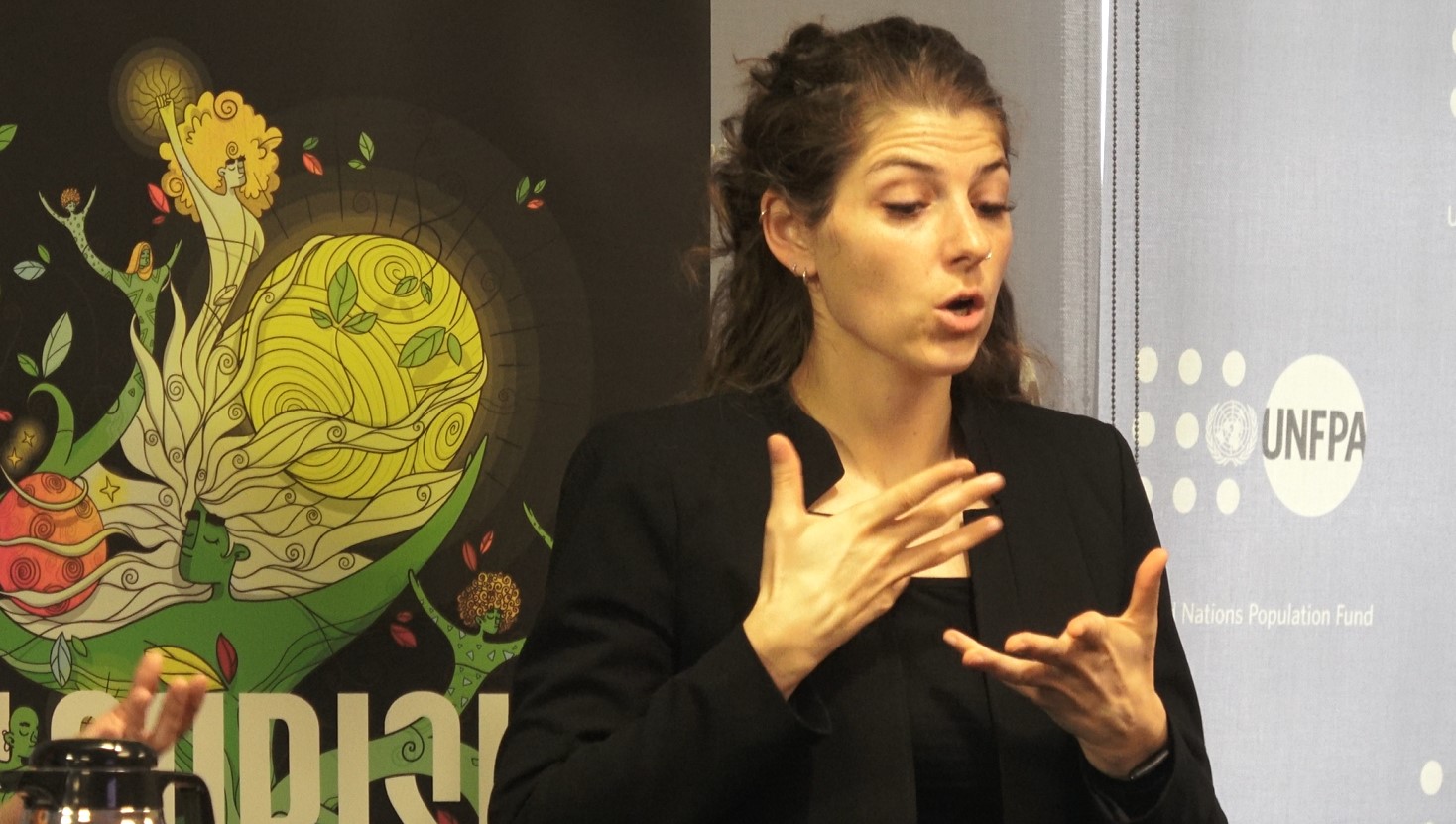
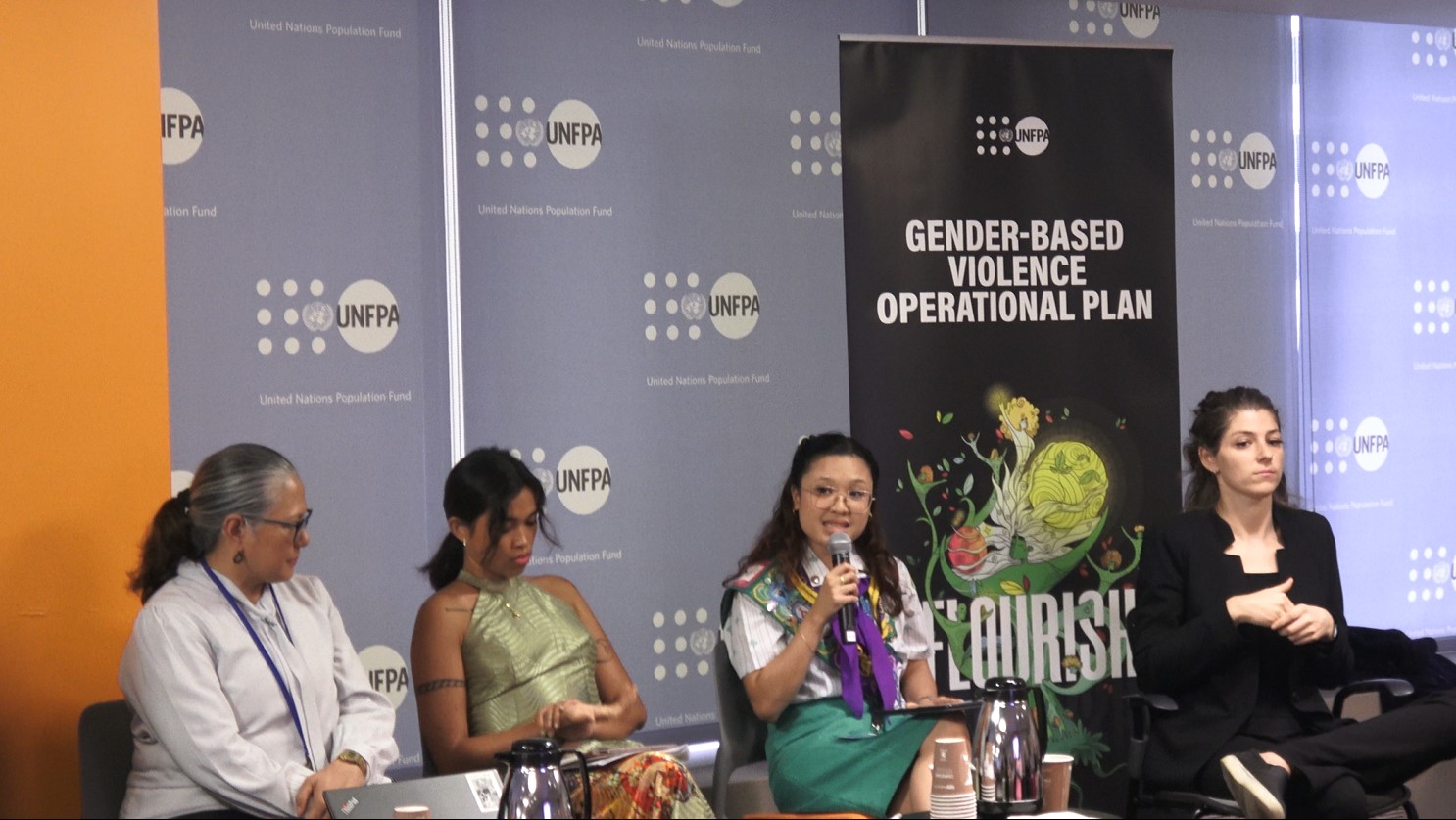
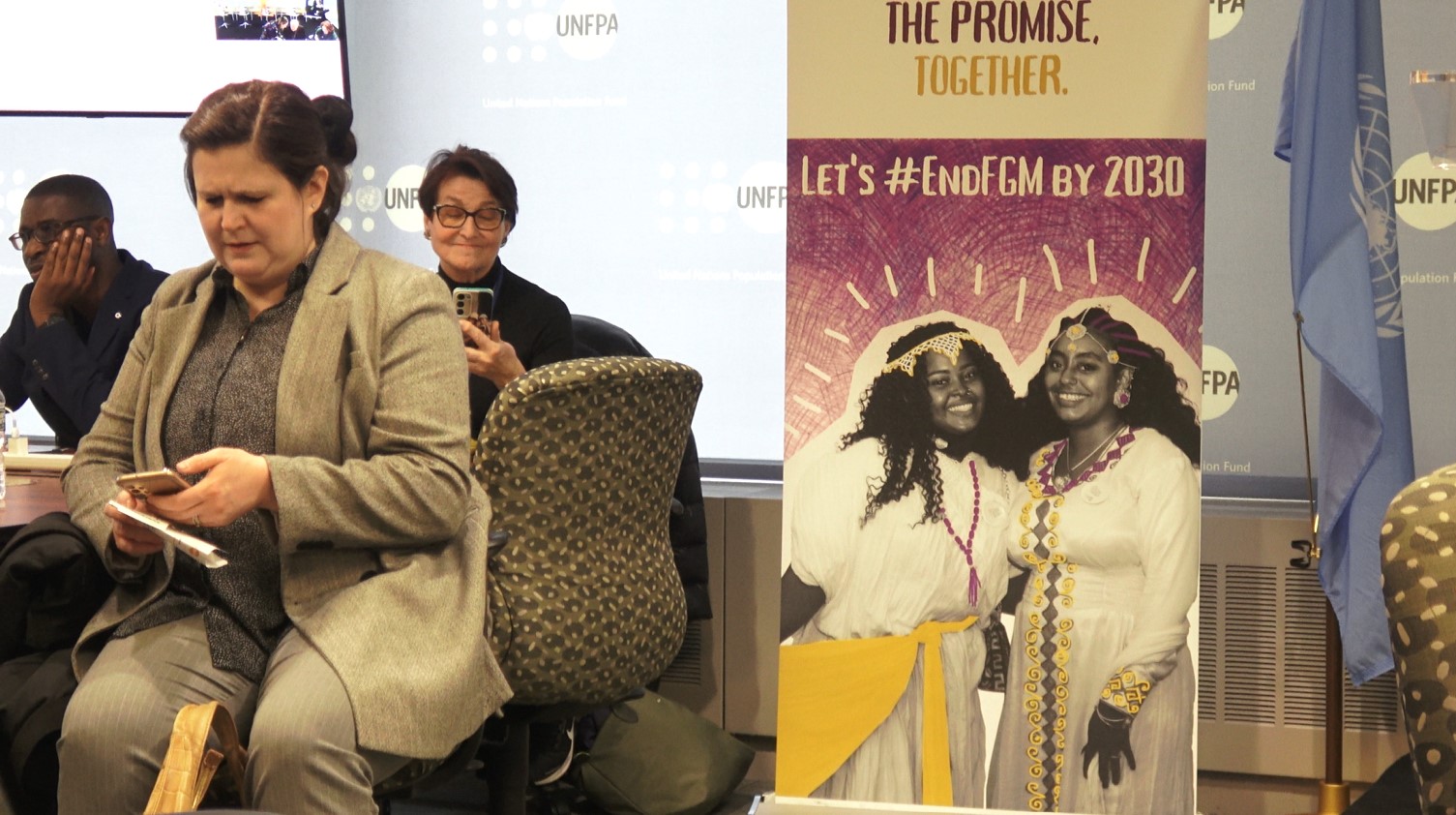
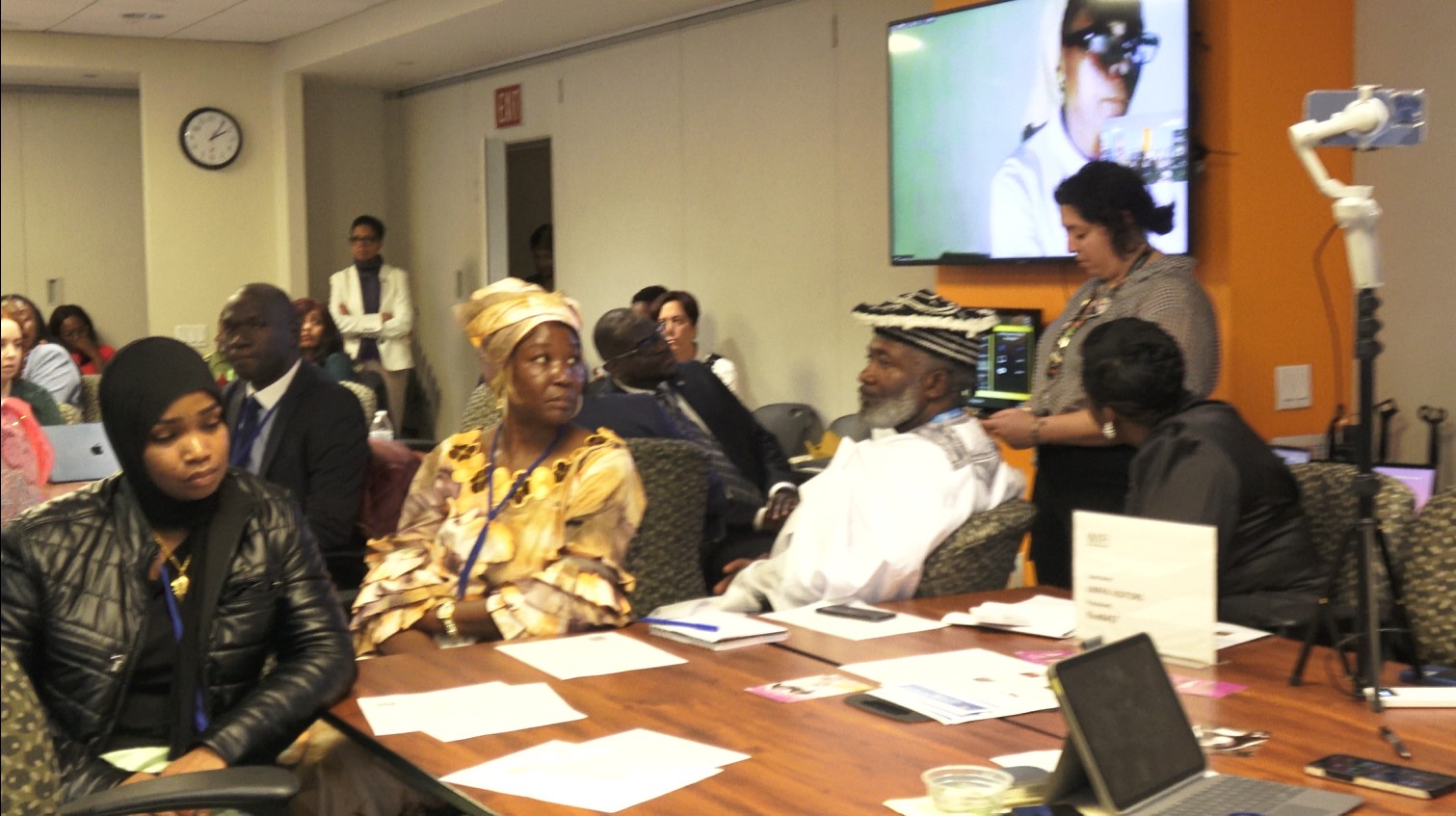
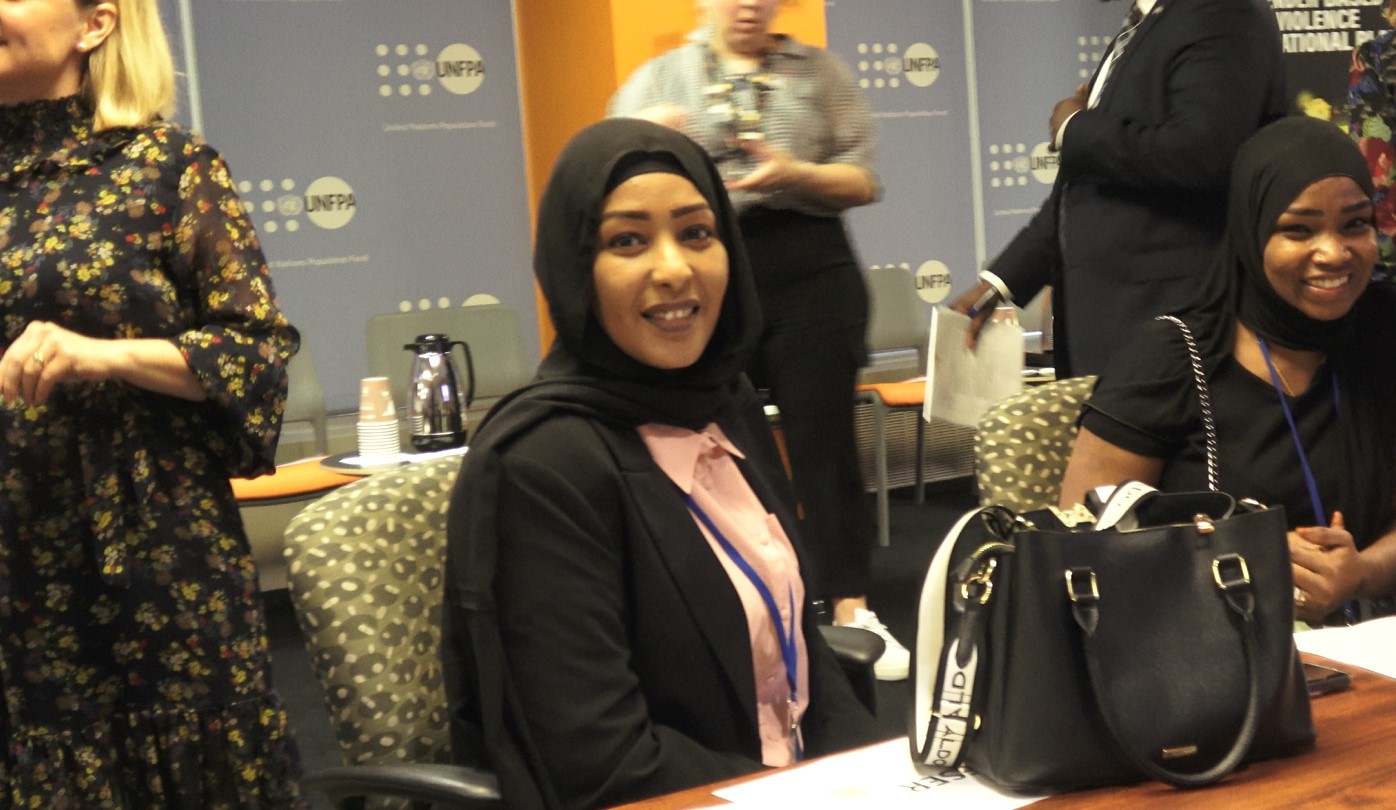
 Celebrity Media TV
Celebrity Media TV









